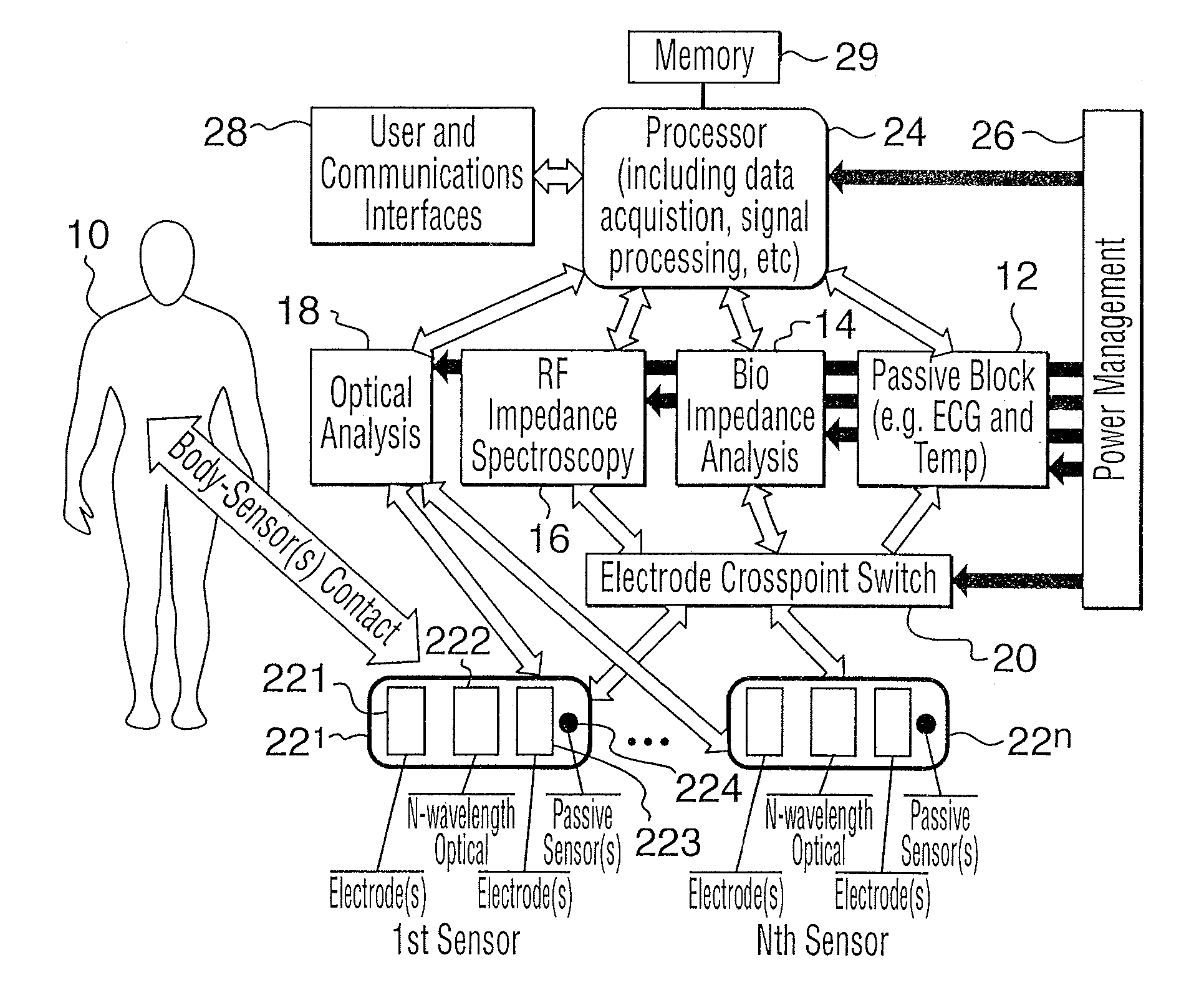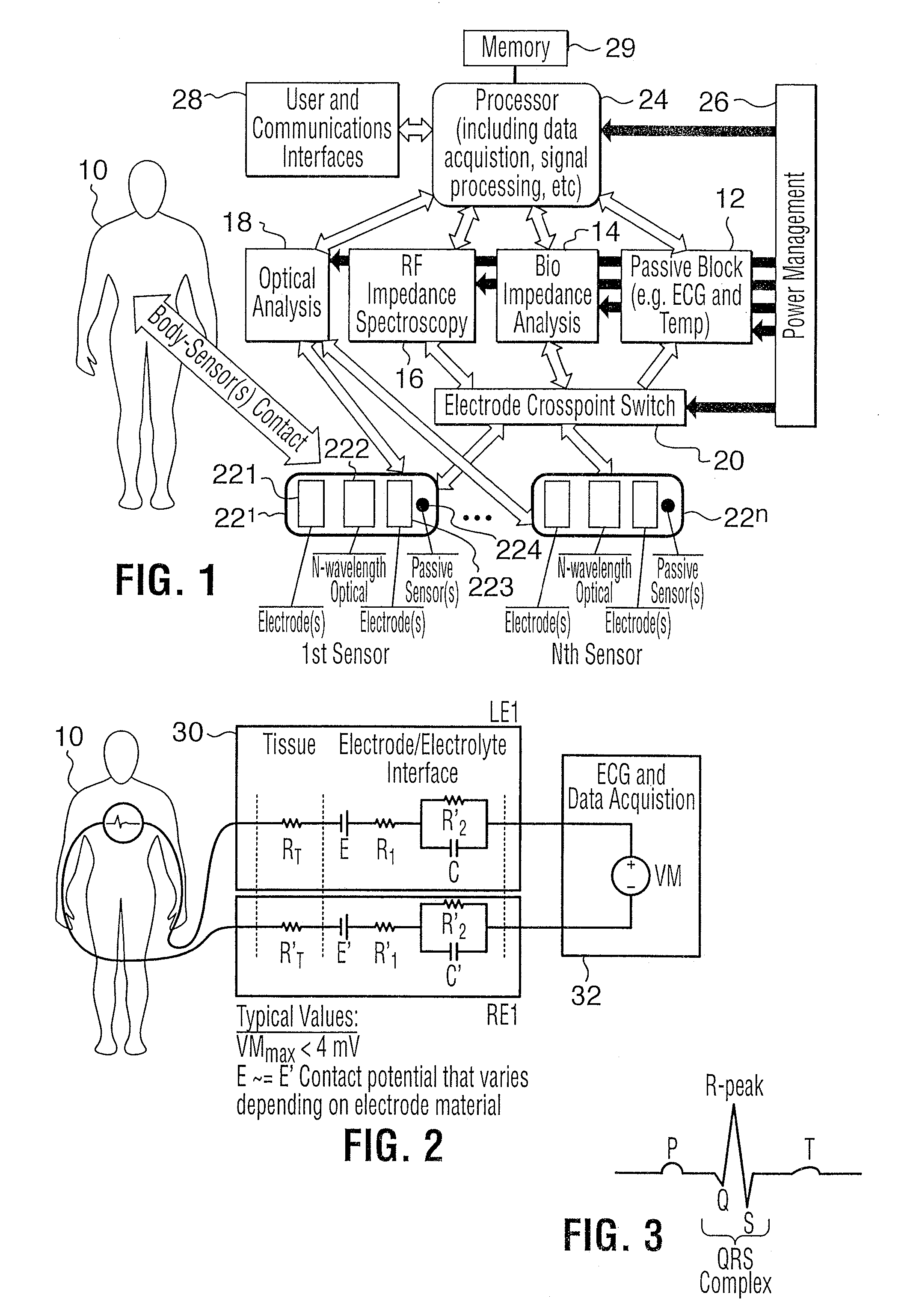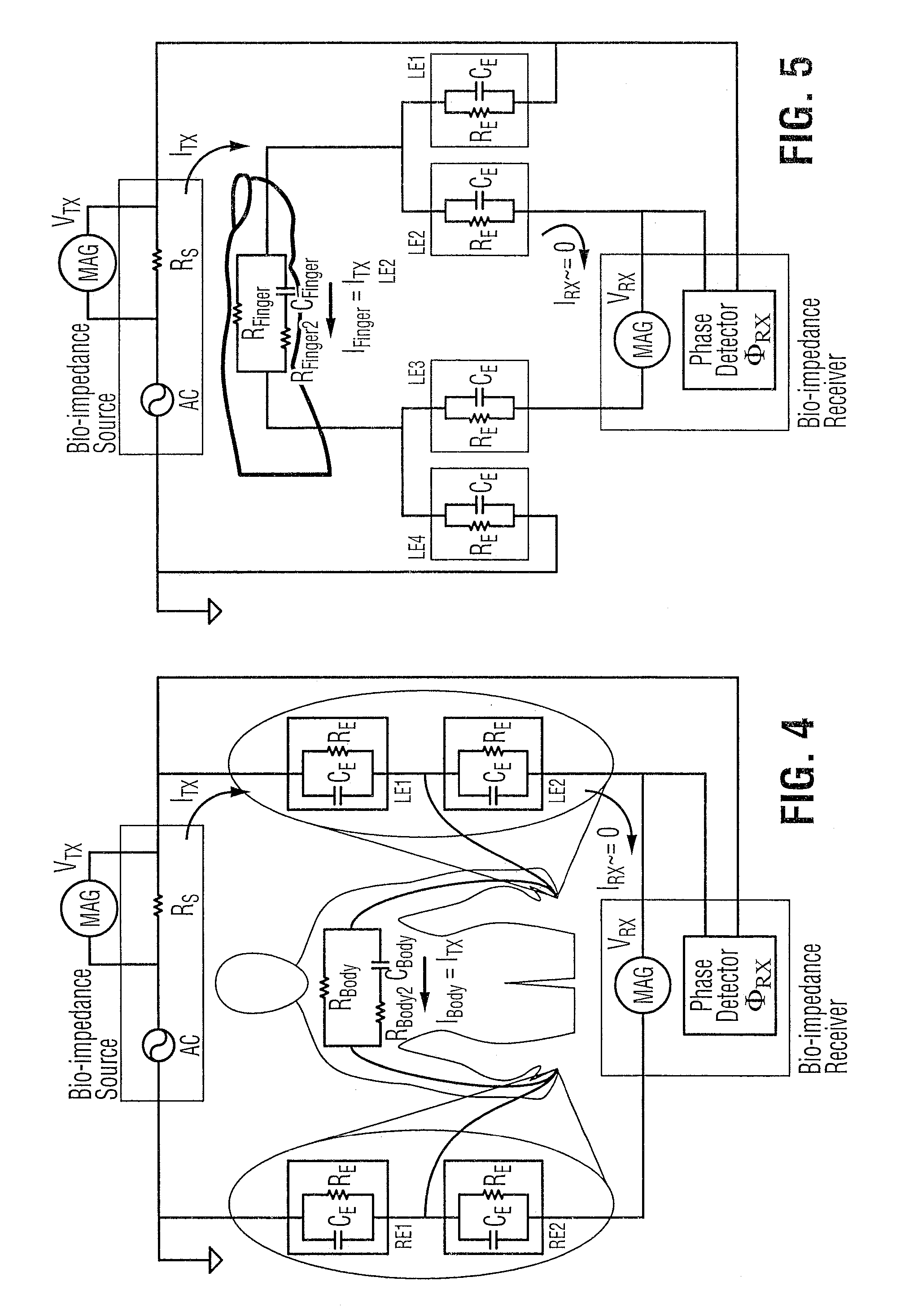Non-invasive method and apparatus for determining a physiological parameter
a physiological parameter and non-invasive technology, applied in the field of physiological analysis, can solve the problems of difficult to accurately measure all factors in real time using rf spectroscopy in order to calibrate the measurements, and the use of complicated and time-consuming calibration procedures, etc., to achieve non-invasive, accurate, and accurate measurement of physiological parameters. , the effect of improving the accuracy of the results
- Summary
- Abstract
- Description
- Claims
- Application Information
AI Technical Summary
Benefits of technology
Problems solved by technology
Method used
Image
Examples
Embodiment Construction
[0050]As noted above, in accordance with the principles of the invention, a final result for a physiological parameter is obtained from multiple disparate sources of data.
[0051]FIG. 1 discloses a system level block diagram of a preferred embodiment for analyzing the physiology of a patient 10. This system combines a physical noninvasive optical analysis subsystem with one or more physical noninvasive bioelectric measurement subsystems: a passive block subsystem that passively measures physiology attributes such as Electrocardiogram (ECG), temperature and sensor pressure; a bio-impedance analysis subsystem 14, an RF-impedance Spectroscopy subsystem; and an optical analysis subsystem 18.
[0052]An electrode cross-point switch 20 allows sensor module electrodes 221, . . . 22n to be connected to any of the bioelectrical analysis subsystems, giving maximum flexibility in electrode configuration. The electrical cross point switch 20 allows the electrodes to be switched to a single subsystem...
PUM
 Login to View More
Login to View More Abstract
Description
Claims
Application Information
 Login to View More
Login to View More - R&D
- Intellectual Property
- Life Sciences
- Materials
- Tech Scout
- Unparalleled Data Quality
- Higher Quality Content
- 60% Fewer Hallucinations
Browse by: Latest US Patents, China's latest patents, Technical Efficacy Thesaurus, Application Domain, Technology Topic, Popular Technical Reports.
© 2025 PatSnap. All rights reserved.Legal|Privacy policy|Modern Slavery Act Transparency Statement|Sitemap|About US| Contact US: help@patsnap.com



